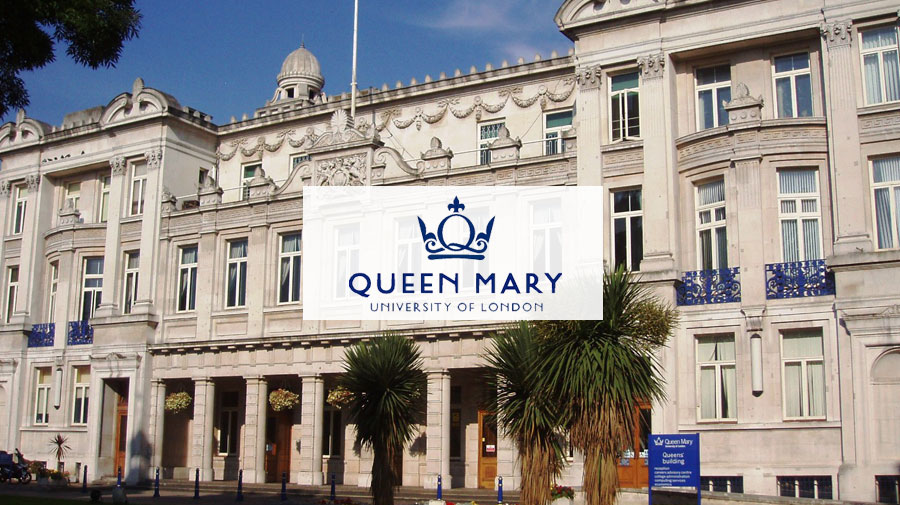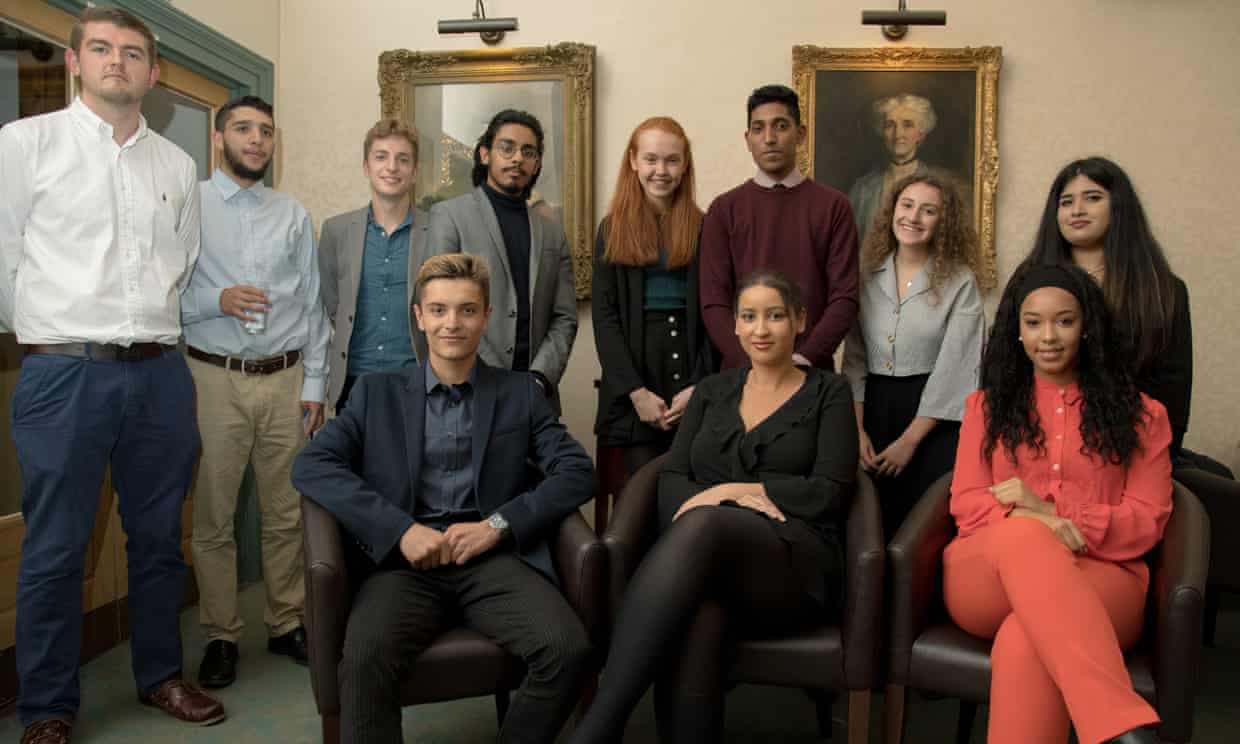
Photo:uniserveducation.com
As a campaigner for reform of our universities and their courses, to reflect and project goodness and wisdom, by taking action in the interest of the common good, I am delighted to send my congratulations and best wishes to Queen Mary, University of London on the launch of the UK's first degree in Social Change.
At this time of spiritual, moral and ethical confusion, when the world of knowledge and competence is in a state of flux, the university is showing that a values-led education can do more than stumble in the dark; it points to the light in the world.
I salute the university and wish the first intake of students the best in all they do, changing the world for the better. Long may it be so.
Business Management (Social Change)
Are you interested in changing the world for the better?
'Earn while you train in business management and social change, and graduate with both a BSc and four years of work experience. This degree apprenticeship is designed to help you build a career in the voluntary and non-profit sectors, which includes charities and community organisations.
You will build on your creative thinking, communication and analytical skills while learning about key business practices like accounting, marketing, human resources and organisational innovation.
Through engagement with leading practitioners in the sector, you will develop a strong understanding as well as practical experience of the unique governance and regulatory environment, along with social impact and evaluation, fundraising, finance and project management.
In your third and fourth years, you will choose modules and work-based projects that suit your interests, allowing you to develop expertise in the charitable and voluntary sectors.
Teaching and research are based on three pillars: governance; social justice and sustainability; and the UN Principles for Responsible Management Education (PRME).'-Social Change at Queen Mary
UK’s first degree course in social change begins*
Queen Mary University of London freshers have been paired with charities for degree programme

'Some of the student apprentices on the course.' Photo: Anselm Ebulue/The Guardian
‘The UK’s first degree course in “social change” has attracted five times more candidates per place than Oxford University, as young people flock to activist careers to reshape a world strained by environmental and wealth inequalities.
Freshers gathered for the start of the pioneering course this week at Queen Mary University of London where they have been paired with major charities in a study-apprenticeship programme aimed at forging a new generation of charity leaders.
Around 80% of the students are from black and minority ethnic (Bame) backgrounds which the course leaders hope will change a status quo which saw a third of the UK’s largest charities led by completely white teams last year, according to a study of 100 organisations.
Charities which have signed up to take on the degree apprentices include WaterAid, Alzheimer’s Society, Action for Children, Young Gamers and Gamblers Education Trust (YGAM) and the Scouts. They will be taught ethics, advocacy, accounting and law with modules on starting up organisations, mentoring others and using social media.
“You have generations growing up now, the Greta Thunbergs of this world who want to take action to make the world a better place,” said Dr Philippa Lloyd, vice-principal of Queen Mary. “They want to make a social impact as well as an economic impact. That is what this is tapping into.”
More than 500 people applied for the 13 places on the four-year BSc course – the equivalent of 38 per place, whereas six people applied for every place at Oxford University in 2017. There are two days of study each week and the rest is work with the host charity. The apprentices earn the minimum wage.
“My area is quite rough,” said Adarsh Ramchurn, from Ilford, at the course launch. “There’s knife crime and youth violence and that’s something I don’t want to escalate. The fact I know we are changing lives and wanting to make a positive impact in society [is important to me].”
Shania Thomas, 19, from Chiswick said she was among those in her generation who had concluded that capitalism was not working and so their career choices were increasingly focusing on social change.
“Coming from a disadvantaged background I think about how I can help other people and be a role model,” she said. “This degree will help us find out how to do something about [the problems we see]. Being a role model in the Bame community has partly motivated me to do this.”
Lloyd said: “Rather than acting like Lady Bountiful, it is about having empathy with the lived experience.
“You can appreciate it, but you can’t fully understand it unless you have lived with people or have had that experience yourself. I think that diversity is really important and getting that into the senior leadership, not just of charities.”
Mike Wojick, chairman of YGAM which is taking on Nadia Tarik, 22, from Bromley as a degree apprentice, said many of the people his charity helped worked as warehouse labourers or drivers, and the leadership of charities needed to better reflect their users.
“As a professional you don’t have much experience of people working in those areas,” he said. “That’s why it’s important for our staff to reflect that and get pathways in those communities.”
The chief executive of Scouts, Matt Hyde, said: “There is an explicit aim to diversify the charity sector which is predominantly white.
“We need more people with lived experience leading social sector organisations. We have to channel the frustrations about the inequalities into practical solutions and this is one of those solutions.”
*This article by Robert Booth was first published in the Guardian on 26 September 2019
N.B. Some friendly and heartfelt advice to the course leader, Social Change, Queen Mary, University of London.
Please, and I cannot over emphasise this, ensure that the students are offered courses in economics and business that reflect their realities, their dreams and aspirations and the realities of the world situations. If they can get these within the current curriculum at the departments of economics, at any university, I am not that sure. In what follows, I hope, I can make this point as clear as possible.
Here, to assist you further, I offer the following for your kind consideration:
First item to note, to appreciate the spirit of my advice is:
Ethics boys
'Sir, Around 1991 I offered the London School of Economics a grant of £1 million to set up a Chair in Business Ethics. John Ashworth, at that time the Director of the LSE, encouraged the idea but had to write to me to say, regretfully, that the faculty had rejected the offer as it saw no correlation between ethics and economics. Quite.' Lord Kalms, House of Lords, in a letter to the Times (08/03/2011)
And now a few reading suggestions:
Calling all academic economists: What are you teaching your students?
‘Saving economics from the economists’: My dialogue with a young economist
Economists Stop teaching 'The World's Dumbest Idea'!
Economics and Economists Engulfed By Crises: What Do We Tell the Students?
Stop the Seeds of Destruction: Toward teaching economics of the real world
Why Economics, Economists and Economy Fail?
Economics, Globalisation and the Common Good: A Lecture at London School of Economics
Dismal Scientists Discover the Truth: The Prize is not Noble and Economics is not a Science
A New Nobel Prize: Economics in the Interest of the Common Good
Why Economics Needs the Common Good?
The Destruction of our World and the lies of Milton Friedman
Economic Growth: The Index of Misery
Neoliberalism and the rise in global loneliness, depression and suicide
The Decline and fall of America: Social cohesion sacrificed to greed
Mr Trump, we are not what we earn!
The UK’s Broken Economic Model
Greed of Profit Maximisation and the Robbery of the Century in London
Why Happiness Should be Taught at Our Universities
The World would be a Better Place if Economists had Read This Book
Britain today and the Bankruptcy of Ideas, Vision and Values-less Education
What might an Economy for the Common Good look like?
My Economics and Business Educators’ Oath: My Promise to My Students
For more articles please see: www.gcgi.info
